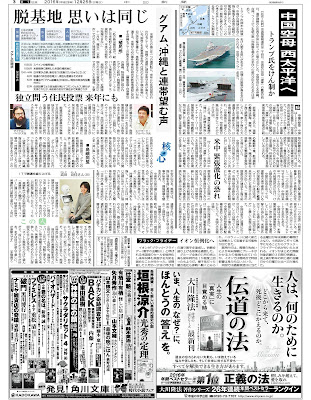Media from Japan Trip

I traveled to Japan last month with Ed Alvarez the Executive Director for Guam's Commission on Decolonization. We were in Japan for just a few days but we were able to give a number of talks at two universities in the Kansai area thanks to our friends Ronni Alexander (Kobe University) and Yasukatsu Matsushima (Ryukkoku University), who arranged our visits to their institutions of higher education. Our visit also got us some coverage in the newspapers Tokyo Shinbun and Chunichi Shinbun. I have no idea what they are saying in the articles or in this article below taken from the website for Ryukkoku Uniersity, but I am hoping they are either speaking positively about the message we had about decolonization in Guam or about the illustrious nature of my beard. Si Yu'us Ma'åse ta'lo nu si Ronni yan si Yasukatsu para i ayudon-ñiha gi este na hinanao! Gof ti apmam, lao gof gaibåli sinembatgo. ************* グアム政府事務局長、グアム大学教授による特別講義を開催(地域経済論ほか) 12/26/16 Ryukkoku Universit

